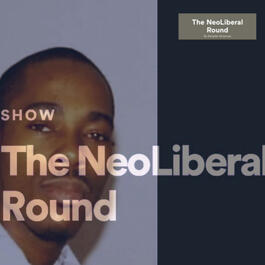
Reflections in Africology Part 3 Afrocentricity Vs Afrocentrism
Class: The Afrocentric Paradigm Written by: Rev. Renaldo McKenzie, PhD Student Professor: Dr. Ama Mazama Date: October 31, 2024 Topic: Presentation on Afrocentrism and Afrocentricity: How does Sara Balakrishnan Approach Afrocentrism and Afrocentricity? How does she differentiate between the two? Recently, there was a discussion in one of the classes at Temple University in the Africology and African American Studies Department about who is “Afrocentric” or not, based on various measures of what is employed by the student in his/her own understanding of the texts concerning the foundations of knowledge and the corruption of cultures which persist. In fact, what seemed to have been unclear among the students was whether there was any difference between “Afrocentrism” and “Afrocentric.” Yet, no one mentioned “Afrocentrism”. Instead, the students, in my estimation, spoke of “Afrocentricity” as the highest political tradition of “Afrocentrism” or African liberation. Some students argued that Dubois was not “Afrocentric,” and Fanon was also because they were not centered on Africa and still relied on European traditions within their strategies. It was as if Dubois and Fanon were not significant because they were not “Afrocentric” enough. Regardless, what they were was part of a tradition we call “Afrocentrism”. Sarah Balakrishnan attempted to delineate between “Afrocentricity” and “Afrocentrism” in her article entitled, “Afrocentrism Revisited,” Africa in the Philosophy of Black Nationalism.” She does not make the mistake of downplaying the contributions of any to our history. However, it discusses the history and development of Africa and its struggle for liberation within the historical context. In a sense, Balakrishnan attempted to reconcile the divide between those who advocated for one kind of liberation and “Africanism” or “Africanity” for another and brought clarity to the debate by suggesting where and when “Africanism” and its rich tradition begins: transcending “Afrocentricity” to considering the rich historical and political traditions and contributions towards African liberation starting with the first evidence of African civilization. Balakrishnan’s approach is macroscopic and broad or considers the general and the whole instead of looking at particulars or aspects of “African” reality to make the tradition and experience inclusive. Nevertheless, she makes a comparison between the whole/general that is “Afrocentrism” and the particular that is “Black Nationalism” and “Afrocentricity”. Balakrishnan splits “Afrocentrism” into political traditions or movements such as “Black Nationalism”/Garveyism and “Afrocentricity” or the “Afrocentric” movement, etc. In terms of describing “Afrocentrism” within the tradition or movement of “Black Nationalism”, Balakrishnan uses a Marxist notion of self to conceptualize how, through strategies or systematic means, Africans became dispossessed of self. So, the repossession of self through self-discovery and developing a consciousness of resilience defined the black nationalist movements of the 19th and early 20th century: Pan African Movement, Garveyism, Negritude, the Black Panther, and (Independent) Movements. According to Balakrishnan, In this sense, Afrocentrism belonged to a political tradition known as Black nationalism, having formed one of its earliest variations. Unlike in the European mold, the nation of Black nationalism did not emerge technocratically with the modern state. Rather, on the collective level, Black nationalism has concerned the African’s dispossession of the self: an ontological alienation consequent of the continuous subordination of Black life to capital, whether through slavery, colonization, or apartheid. In the pursuit of self-repossession (self-sovereignty), Black nationalism seeks to infuse Blackness with meaning and personhood, with liberty and destiny. Renaldo discusses the full paper at https://anchor.fm/theneoliberal. Subscribe for free!
From "The NeoLiberal Round"


Comments
Add comment Feedback